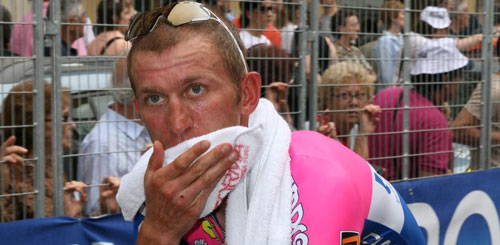 I did a couple of sportives this summer in Italy and France respectively. In Italy we were tasked with scaling the Mortirolo in the mid-day sun and the heat was a major factor as you simply weren't riding fast enough to get rid of the sweat, and it was difficult to keep up your fluid levels during the 100 minutes or so of climbing it involved.
I did a couple of sportives this summer in Italy and France respectively. In Italy we were tasked with scaling the Mortirolo in the mid-day sun and the heat was a major factor as you simply weren't riding fast enough to get rid of the sweat, and it was difficult to keep up your fluid levels during the 100 minutes or so of climbing it involved.
Likewise the climb to les Deux Alpes involved roughly speaking 40km of uphill at the end of the event in pretty warm conditions when there were already 120km or so in the legs. Lots of fun, but bloody tough at the same time.
So it's interesting to read some new research by the Australian Institute of Sport (AIS) suggesting that a slushie could be the key to better performance in such hot conditions.
The basis for their research was the assumption that an overheated athlete is considerably hampered as the body attempts to reduce further overheating by invoking fatigue faster and thus slowing us down.
They recruited some decent club cyclists as guinea pigs for two experiments aimed at reducing their core body temperature, and therefore improving their performance.
Experiment 1 – Slushie power
The first experiment saw the cyclists down a litre of ice slushie 30 minutes before they were due to exercise. This resulted in a drop in body temperature of around half a degree Celsius. After a 30 minute warm-up their body remained cooler than the control group that was drinking water instead.